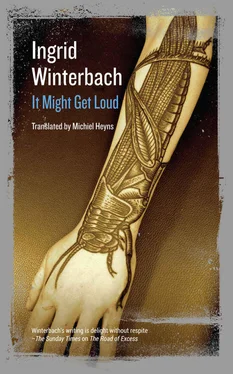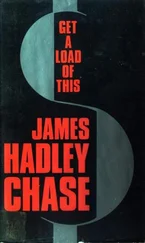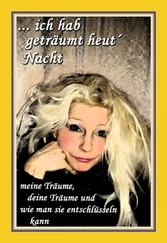When it’s overcast during the day, the nearest mountain is soft, and its colours muted. No dramatic shapes or shadows: the mountain is then soft and solid at the same time, as if you could stroke it with your hand. A young mountain. Younger than the others, it would seem. When the weather’s cleared again, this mountain is firmer in its resolution, more assertive of colour and form. So she keeps her eyes constantly fixed on the mountains. She is aware of the changing play of cloud above them, of their hourly mutation of colour, solidity, texture. Aromas arise from the soil. Doves coo. The claim it all makes upon her! Her heart feels like a clam clinging to a rock, now being prised open as if with a small sharp knife.
Of a day an emptiness came upon her. It settled in every organ: stomach, heart, liver and kidneys. Eventually in her head. An emptiness akin to pain.
*
Margaretha Stoffels was sixty-one years old, all those years ago, and her husband, or companion, Willem, not a day older than twenty-four. He took off for Gordon’s Bay as early as a quarter past six every morning. Nevertheless they were happy together, so Margaretha told Maria. Other couples, of whom Maria has forgotten the names, who came knocking at her and Andreas’s front door — high on spirits, elevated of spirit, in spite of their often lamentable and reduced circumstances. Countless couples that she saw wandering about on the banks of the river, in the streets of the town, apparently insouciantly. But especially Joeta and her dark companion, dark of hide and intention, who went underground in winter, arose in the spring, staggered down the mountainside and assaulted, accosted or blackmailed at random any prospect or possible benefactor. Maria watched them. Determination! she thought, such as one did not encounter every day.
You could tell Sofie nothing. Obstinate. Headstrong. No more to be deflected from her course than an arrow from a bow. What determination it must have taken to make an end to her own life in such a way.
*
Look, Jakobus Coetzee writes to her in an email, before you visit us, I should give you a little background. This isn’t the kind of outfit that you want to approach unprepared. It’s advisable to know what to expect. I don’t know if I can report coherently on this place. My life has changed direction here in an unexpected way. For instance, I pick up pig shit, with bucket and spade, and for the first time in my life I feel that I’m holding my own in a social environment. As I’ve mentioned, says Jakobus, the light here falls at times as it fell once on a farm in my youth, a place to which I am always returning in memory. The young woman who would have worked in the kitchen on that farm is now my neighbour. Thus have things changed.
An old military storage depot
IN THIS PLACE I’M EVERYBODY’S UNCLE, Jakobus continues. My sojourn here, which initially I expected to be one of the most eccentric chapters in my life, I now see as something rather more ordinary. I see myself as a very ordinary participant in an extraordinary situation. Under the management and direction of Josias B, incidents and situations from common life are trampled underfoot here as guiding principle. Literally, by the clean and unclean creatures here, and figuratively, by Josias B’s management style.
The farm is situated in the city, at the foot of Signal Hill. Every day the noonday gun booms. Apart from pigs (from piglet to hamlet, as my father would say), there are geese here, chickens, a merino ewe, semi-feral cats, and a hundred-and-one dogs. There are also donkeys. Thus, all creatures great and small (though I doubt that the Lord God made them all). Hamsters and canaries come and go. The farm ascends in terraces up a steep incline.
Allow me to orientate you more or less with regards to the mise-en-scène here, and also the dramatis personae.
As you come up the driveway, you have on your right the building that serves, apart from sleeping quarters, also as kitchen (unfortunately not very hygienic), library, pig-feed depository and chicken hatchery. Here live Nomsa and Thamsanqua Ndlovo. Nomsa is nine and Thamsanqua is fifteen. Their elder brother, Xola, was here till last year, but he’s now rapping along with Die Antwoord (our answer to the Baader-Meinhof Group); amazing the progress they have made. Rub your eyes in disbelief.
The Ndlovos’ father died of alcohol-related causes when Nomsa was an infant. Ma Ndlovo clearly couldn’t cope and brought the children here a few years later. So Nomsa has been living on the farm for the better part of her life. (Remember, it’s a foster farm and halfway-house). She has overcome her uncertainty regarding origin and family identity very well, it would seem, because she possesses natural self-assurance and a pronounced social disposition.
The Ndlovos are talented children. Thamsanqua (which means good fortune) goes to school somewhere in Nyanga. She walks and takes the train to get there. She only comes home in the late afternoon. She does well at school. Sculpted brow, large, expansive face — very expressive. Huge alto voice. Never talks about feelings, but always with feeling. A generous presence. More than anybody else here, she has a foothold in the townships. She sometimes disappears sight unseen, reappears sight unseen; goes to visit her mother, wherever she is to be found. She strikes me as a first generation urbanite — she’s in any case no rural girl — one feels how the older pastoral Xhosa values of cooperation and fellow-feeling have in her been transposed to the space of the big city, the metropolis. She plays rugby, swings, singing loudly and extrovertedly, on the swings in the little Tamboerskloof park.
A bit further along, on the left, lives the former spouse of Josias B, Laetitia, with her boyfriend (Argentinian with white hair recently dyed black). With them live Laetitia’s two sons and a daughter from the marriage to Josias, the boyfriend’s daughter from a previous liaison, and the foster daughter Nomalizo Mhlaba (fourteen years old). In the first years of her life Nomalizo lived with her alcoholic mother under a bridge in front of Checkers. Her brother Jongilanga was also on the farm till recently. The Mhlabas are survivors. Jongilanga was about nine when he escaped with Nomalizo, then four or five, from a previous foster home (near the now imploded salt-and-pepper pot cooling towers this side of Langa). He carried her all the way to the farm on his back.
After the kitchen on the right follows the pig area. (Expect to recoil slightly from the smell.) This area is a free-for-all. Here the pigs are fed. There are muddy pools where they can wallow to their hearts’ content. A bit further on the left is the nursery. This is the middle level. There are plants here, fish ponds and frog-hatching ponds, with tadpoles in various stages of development. When they are fully grown, the frogs hop out of their respective ponds, and hit the road. Between the road and the nursery is a vegetable garden.
But there endeth the known world, because the rest of the setup is a manifestation of Josias B’s imagination and his collector’s hand. Because lord-oh-lord, here where I live, there is something of everything. The road, on the incline, curves to the right, and on the penultimate level there are five halls. Each measures about twenty-five by eight metres, with a vaulted ceiling — about six metres high in the centre — one seamless brick structure from floor to roof. Architecturally impressive spaces. Old weapons depots, built at the end of the nineteenth century. In one of these halls I live. In every hall there is something of everything — expect to be surprised. From top to bottom, in every nook and cranny, from brick floor to vaulted roof, with hardly any space to move. The whole setup larger than life, a humungous installation. Believe me when I say that it blows every effort at installation before and since out of the water. Kurt Schwitters, eat your heart out, and all the chaps in the Museum für Gegenwart in Berlin, and all their aspirant acolytes.
Читать дальше












